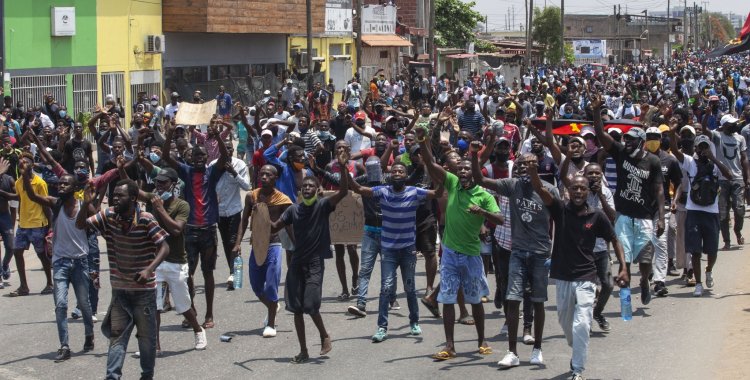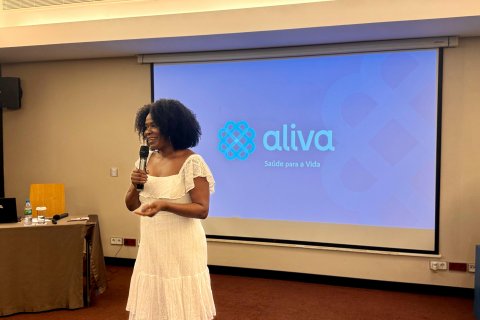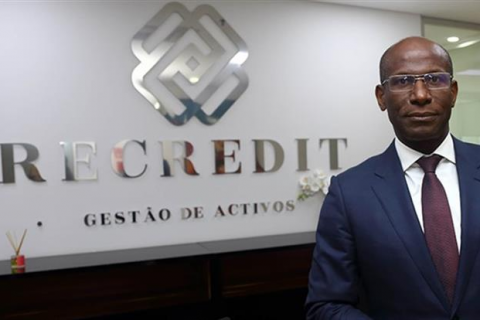The information was transmitted this Monday by the president of the parliamentary group of the National Union for the Total Independence of Angola (UNITA), Liberty Chiyaka, stating that the proposal aims to "eliminate the misunderstandings, fears and even deaths of citizens associated with the demonstrations of recent years".
According to the UNITA politician, although the Constitution of the Republic of Angola (CRA) establishes that citizens are free to assemble and demonstrate without impediments, without weapons and without needing any authorization, "there has been, since 1991, a law that says otherwise."
"Of course this law, Law no. 16/91, of May 11, Law on the Right to Assemble and Demonstrate is unconstitutional and needs to be repealed," Liberty Chiyaka argued at a press conference in Luanda.
The UNITA bill, delivered this Monday to the office of the President of the National Assembly, "will repeal the 1991 law and regulate, in the interest of all and in new ways, the exercise of the right to freedom of assembly and demonstration.
The law that "we have proposed comes to clarify concepts to eliminate misunderstandings, establish limits to remove fears, discipline behavior to avoid abuses, and establish clear rules to be observed by all."
"By the demonstrators, by the police and by the counter-demonstrators," explained the parliamentary leader of the "maninhos".
For UNITA, the reason for the referred "fears and negative behaviors" are rooted, "mainly, in the undue connection that is established between the right to freedom of democratic demonstration and the cultural remnants of the monolithic mentality.
The latest demonstrations in Angola, mainly promoted by youth and civil society organizations, have been marked by direct confrontations between demonstrators and police officers, some of which resulted in deaths, injuries and arrests, including of journalists.
Liberty Chiyaka, in her intervention, also considered that the laws passed in the 90's, namely the Law of Meeting and Demonstration, the Law of Political Parties, among others, "did not guarantee the effective realization of democracy and fundamental rights.
In "practice, even with peace," he argued, the "Government continued to restrict de facto the freedoms and rights of citizens. The freedoms of expression, of demonstration, of the press and others, continued only in the scope of mere constitutional formality".
The UNITA MP also said that even with the CRA, approved in 2010, which enshrines the right to freedom of assembly and peaceful and unarmed demonstration, "the party-state continued to subvert and instrumentalize the police to prevent and repress demonstrators."
"The notion that sovereignty belongs to the people, and not to governments or armies, is not in the minds of those who govern," he pointed out.
"This authoritarian culture of the arbitrary exercise of political power without taking into account the limits imposed by the fundamental rights and freedoms of citizens has remained and remains so far," he stressed.
The UNITA parliamentary leader also admitted that "fears of an Arab Spring" have led the "regime in Angola to subvert the organs of the democratic constitutional state, using both brute force and political propaganda to violate the rights of Angolans.
The "Government cannot prevent, limit or condition the exercise of fundamental rights. But also the citizens cannot use the fundamental rights to make desandos, vandalize public equipment or take the political power by ways not foreseen in the law".
In Angola, Liberty Chiyaka noted, the fears about demonstrations are unfounded, because nobody will take power through the right to demonstrate.
"UNITA will not allow that. Power already belongs to the people, and it must always be exercised by the people, for the benefit of the people, under the terms of the Constitution and the law," she noted.
Liberty Chiyaka further assured: "From now on it is over. No one should use weapons anymore to, in the name of the State, assassinate an Angolan for exercising peacefully and without weapons the right of assembly and demonstration."
"Whoever does it will have to be held accountable. The State will have to take responsibility, as established in the Constitution," he urged.
The UNITA politician, who believes in the acceptance and approval of his bill by the Popular Movement for the Liberation of Angola (MPLA, in power), reported that the proposal also aims to establish "rules and procedures to guide prior communication between authorities and demonstrators."







